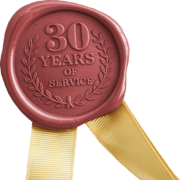Step 8: Monitor and measure success.
10 Steps to successful CRM implementation
Measuring the success of your CRM implementation is crucial to ensure that your investment is delivering the desired outcomes and providing value to your business. Here are 10 important factors to measure and their explanations:
Adoption rate: The adoption rate measures the number of users actively using the CRM regularly. A high adoption rate indicates that the CRM is user-friendly, providing value to users, and is being used to its full potential.
User satisfaction: User satisfaction is a critical factor in determining the success of your CRM implementation. Collect feedback from users on the ease of use and overall satisfaction with the CRM to identify areas where improvements can be made.
Data quality: The quality of the data being entered into the CRM is critical to ensuring that you are making informed decisions. Measuring data quality can help you identify areas where improvements can be made to ensure that the data being used is accurate and up-to-date.
Time savings: The automation of tasks and processes within the CRM can save significant time compared to manual methods. Measuring the time savings can help you quantify the impact of the CRM on productivity and identify areas where additional time savings can be achieved.
Improved customer engagement: The CRM can play a key role in improving customer engagement by streamlining communication and increasing response times. Measuring the impact of the CRM on customer engagement, such as increased customer satisfaction and sales, can help you determine the value being delivered to your customers.
Lead generation and conversion: The CRM can be used to generate leads and track the conversion rate of those leads into sales. Measuring this can help you identify areas where improvements can be made to the sales process and increase lead generation and conversion rates.
Sales and revenue: The impact of the CRM on sales and revenue is a key factor in determining the return on investment (ROI) of the implementation. Measuring the impact of the CRM on sales and revenue can help you understand the value being delivered to your business.
Customer retention: The CRM can be used to improve customer retention by providing a more personalized customer experience. Measuring the impact of the CRM on customer retention, such as reduced churn rate and increased customer loyalty, can help you determine the value being delivered to your customers.
Improved collaboration: The CRM can improve collaboration between team members by providing a centralized platform for communication and decision-making. Measuring the impact of the CRM on collaboration, such as improved communication and increased efficiency, can help you understand the value being delivered to your team.
Integration with other systems: The integration of the CRM with other systems, such as marketing automation platforms or customer service software, can provide additional benefits by streamlining processes and improving overall efficiency. Measuring the level of integration and the impact of these integrations on overall business processes can help you determine the value being delivered by the CRM.
Measuring the success of your CRM implementation is crucial to ensure that your investment is delivering the desired outcomes. By regularly monitoring and evaluating the factors outlined above, you can make the correct decisions to improve your processes continuously and maximize the value of your investment.



